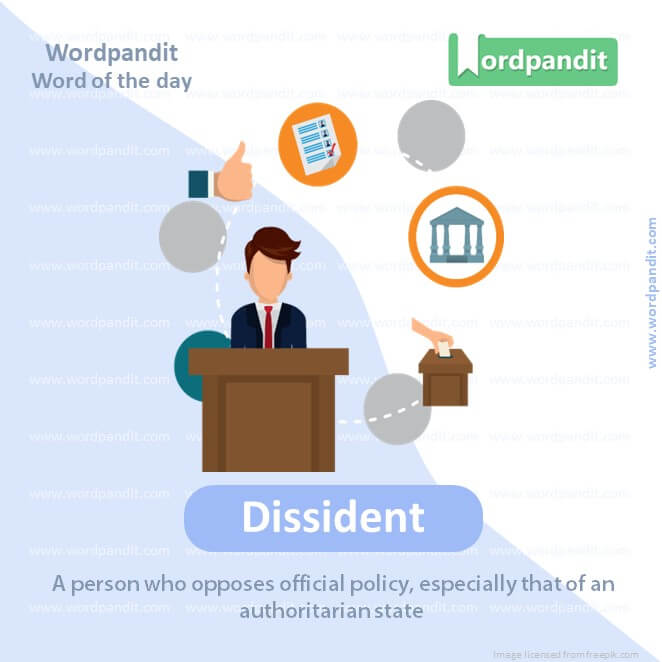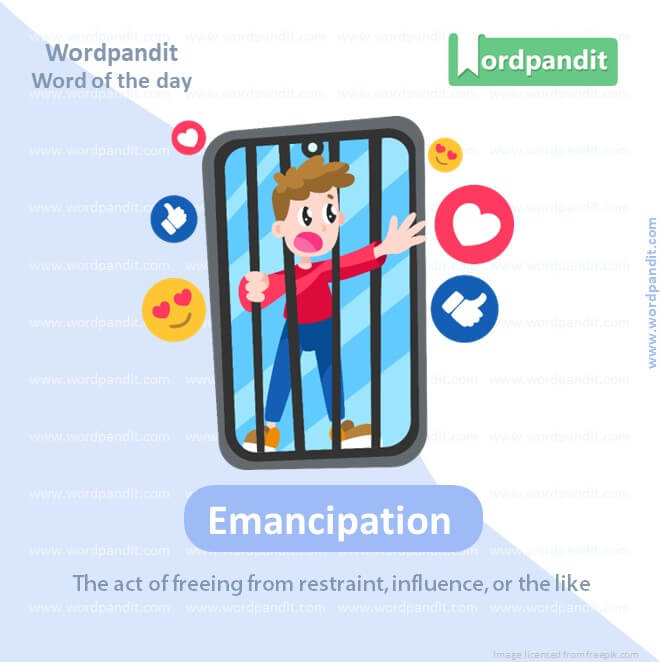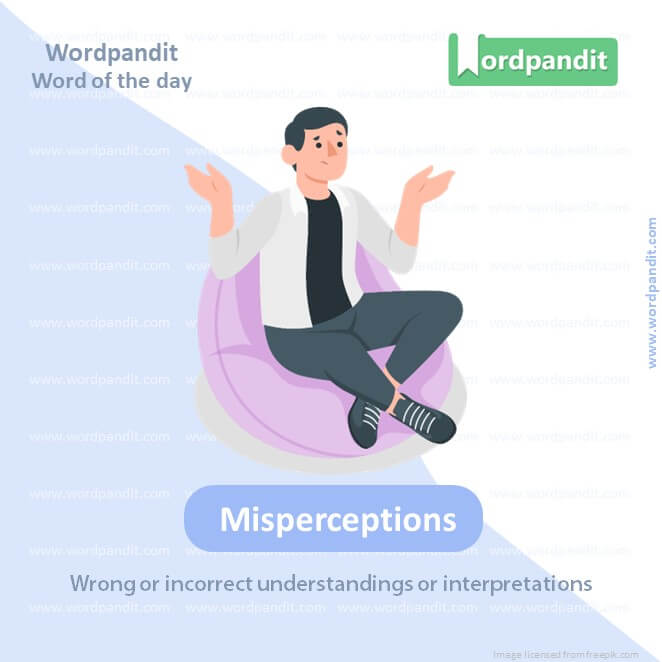Daily Vocabulary Words: List of Daily Used Words
Hi there. Welcome to this special section @ Wordpandit.
Our endeavour here is straightforward: highlighting important daily vocabulary words, you would encounter in The Hindu. This is your repository of commonly used words; essentially, we are posting a list of daily used words. Hence, this has significant practical application as it teaches you words that are commonly used in a leading publication such as The Hindu.
Visit the website daily to learn words from The Hindu.

WORD-1: Constitutive
CONTEXT: The chief minister emphasized that respecting all religions and cultures is constitutive of our national identity.
SOURCE: The Hindu
EXPLANATORY PARAGRAPH: Imagine you’re building a sandcastle, and there’s a special shape you always use in every castle you build. Constitutive is like that special shape—it’s something very important that’s always there.
MEANING: Having the power to establish or give organi zed existence to something (adjective).
PRONUNCIATION: kuhn-STIH-tyoot-iv
SYNONYMS: Fundamental, Integral, Basic, Essential, Inherent.
USAGE EXAMPLES:
1. Respect is constitutive of a healthy relationship.
2. Water is constitutive to human life.
3. Trust is a constitutive element of friendship.
4. Democracy is constitutive of our nation’s principles.

WORD-2: Dissident
CONTEXT: Several dissident voices emerged from within the party, challenging its long-held policies.
SOURCE: The Hindu
EXPLANATORY PARAGRAPH: Have you ever disagreed with your friends about which game to play? A dissident is someone who doesn’t agree with others, especially in big groups like a country.
MEANING: A person who opposes official policy, especially in an authoritarian state (noun).
PRONUNCIATION: DISS-ident
SYNONYMS: Rebel, Protester, Nonconformist, Objector, Heretic.
USAGE EXAMPLES:
1. The dissident was arrested for speaking out against the government.
2. The group of dissidents planned a peaceful protest.
3. He became a dissident after seeing the injustices in his country.
4. The newspaper was known for supporting dissident views.

WORD-3: Emancipation
CONTEXT: The event celebrated the emancipation of bonded laborers and their journey towards freedom and dignity.
SOURCE: The Hindu
EXPLANATORY PARAGRAPH: You know how superheroes free people from bad guys? Emancipation is a big word that means setting someone free, especially from unfair rules.
MEANING: The act of freeing from restraint, influence, or the like (noun).
PRONUNCIATION: e-man-ci-PAY-shun
SYNONYMS: Liberation, Freedom, Release, Deliverance, Unshackling.
USAGE EXAMPLES:
1. The emancipation of slaves was a turning point in history.
2. Women’s emancipation is crucial for societal progress.
3. The revolution led to the emancipation of many oppressed groups.
4. He worked tirelessly for the emancipation of child laborers.

WORD-4: Misperceptions
CONTEXT: The author’s latest book aims to challenge the misperceptions surrounding urban poverty in India.
SOURCE: The Hindu
EXPLANATORY PARAGRAPH: Imagine you thought you saw a big cake in the fridge, but it was really just a picture of a cake. That’s a misperception—when you think something is one way, but it’s actually different.
MEANING: Wrong or incorrect understandings or interpretations (noun).
PRONUNCIATION: miss-per-SEP-shunz
SYNONYMS: Misunderstandings, Mistaken beliefs, Fallacies, Delusions, Misconceptions.
USAGE EXAMPLES:
1. There are many misperceptions about wild animals.
2. His actions led to several misperceptions about his intentions.
3. The article aims to clear up common misperceptions about space.
4. Education can help combat the misperceptions surrounding mental health.

WORD-5: Seminal
CONTEXT: The poet’s seminal works from the 1980s continue to influence a whole new generation of writers.
SOURCE: The Hindu
EXPLANATORY PARAGRAPH: Imagine a book or a song that lots of people love and remember forever. Seminal is a word we use for something that is super important and has a big influence on other things.
MEANING: Strongly influencing later developments (adjective).
PRONUNCIATION: SEM-in-ul
SYNONYMS: Influential, Pioneering, Foundational, Groundbreaking, Landmark.
USAGE EXAMPLES:
1. The scientist’s seminal research shaped the field for decades.
2. That was a seminal moment in the history of cinema.
3. Her seminal book inspired countless other writers.
4. The discovery was seminal to the development of new technologies.
WORD-6: Spectacle
CONTEXT: The annual boat race on the backwaters of Kerala was a grand spectacle, attracting tourists from all over the world.
SOURCE: The Hindu
EXPLANATORY PARAGRAPH: You know how sometimes you see something amazing and can’t stop looking at it, like a big fireworks show? That’s what we call a spectacle—something really cool and attention-grabbing.
MEANING: A visually striking performance or display (noun).
PRONUNCIATION: SPEK-tuh-kul
SYNONYMS: Display, Show, Performance, Exhibition, Presentation.
USAGE EXAMPLES:
1. The parade was a grand spectacle with colorful floats.
2. The natural beauty of the mountains was a spectacle to behold.
3. The concert ended with a spectacle of lights and fireworks.
4. Tourists gathered to watch the spectacle of the sunset over the ocean.
WORD-7: Exile
CONTEXT: The veteran journalist, in his memoir, recounts his years in exile after he openly criticized the ruling regime.
SOURCE: The Hindu
EXPLANATORY PARAGRAPH: Imagine if you had to leave your home and weren’t allowed to come back. That’s called exile. Sometimes, people have to leave their countries because it’s not safe for them or they’re asked to leave.
MEANING: The state of being barred from one’s native country (noun).
PRONUNCIATION: EX-ile
SYNONYMS: Banishment, Expulsion, Deportation, Eviction, Ostracism.
USAGE EXAMPLES:
1. The writer lived in exile for many years due to his controversial views.
2. Many fled into exile to escape the oppressive regime.
3. He returned from exile after the change in government.
4. The queen was sent into exile after the rebellion.
WORD-8: Foresight
CONTEXT: The town’s early investment in rainwater harvesting showed tremendous foresight, now reaping benefits during water scarce months.
SOURCE: The Hindu
EXPLANATORY PARAGRAPH: You know how sometimes you think ahead and pack an umbrella because you think it might rain later? That’s called foresight—when you plan or think about the future.
MEANING: The ability to predict or plan for the future (noun).
PRONUNCIATION: FOR-sight
SYNONYMS: Vision, Prescience, Forethought, Anticipation, Prudence.
USAGE EXAMPLES:
1. His foresight saved the village from the flood.
2. Investing in green energy shows great foresight.
3. She had the foresight to bring extra supplies.
4. Foresight is a valuable trait in leadership.
WORD-9: Avow
CONTEXT: The leader took to the podium to avow his commitment to the peace process amid rising tensions.
SOURCE: The Hindu
EXPLANATORY PARAGRAPH: When you say something loudly and clearly, like telling everyone your favorite color is blue, that’s avowing. It’s like making a promise or telling a truth.
MEANING: To assert or confess openly (verb).
PRONUNCIATION: uh-VOU
SYNONYMS: Affirm, Declare, Profess, Proclaim, Admit.
USAGE EXAMPLES:
1. She avowed her loyalty to the cause.
2. The defendant avowed his innocence in court.
3. He avowed his love for her in front of everyone.
4. The leader avowed to fight against corruption.
WORD-10: Transgression
CONTEXT: The committee found the officer guilty of multiple transgressions, including bypassing standard protocols.
SOURCE: The Hindu
EXPLANATORY PARAGRAPH: You know when you’re told not to eat cookies before dinner, but you sneak one anyway? That’s a tiny transgression. It means doing something you’re not supposed to.
MEANING: An act that goes against a rule or law (noun).
PRONUNCIATION: tran-SGREH-shun
SYNONYMS: Misdeed, Offense, Infraction, Violation, Trespass.
USAGE EXAMPLES:
1. The company faced a fine for its transgressions against environmental laws.
2. His minor transgressions were forgiven by his friends.
3. The story revolves around the transgressions of a young prince.
4. She apologized for her transgression and promised to make amends.
Vocabulary Difficult Words
In our journey of language learning, an encounter with ‘vocabulary difficult words’ is inevitable. These seemingly intimidating terms can often seem like stumbling blocks. However, they also offer a unique chance to deepen our understanding and competence in the language. With a strategic approach, learning ‘vocabulary difficult words’ can become less daunting and more of an empowering undertaking.
To befriend ‘vocabulary difficult words’, comprehension is key. Familiarize yourself with the meaning, usage, and context of these words. Utilize different resources such as books, documentaries, online articles, and digital content. This contextual exposure can ease the process of understanding ‘vocabulary difficult words’.
Challenging as they may seem, ‘vocabulary difficult words’ can be tamed with appropriate memory tactics. Use of flashcards or digital language learning apps that support active recall and spaced repetition can be effective. To foster deeper connections with ‘vocabulary difficult words’, employ mnemonic techniques. This cognitive strategy, involving association of new information to known concepts or stories, aids in better retention and recall.
Another essential in mastering ‘vocabulary difficult words’ is practice. Be it in conversations, written communications, or social media interactions, endeavor to incorporate these words. Practice not only reinforces your knowledge but also enhances your confidence in using these words.
In conclusion, navigating the terrain of ‘vocabulary difficult words’ involves a confluence of comprehension, memory tactics, and active practice. These strategies, interwoven, help transform intimidating words into familiar friends. By conquering ‘vocabulary difficult words’, you not only augment your vocabulary but also elevate your language skills. Remember, every challenging word unlocked is yet another ornament in your linguistic archive. So, delve deep into the ‘vocabulary difficult words’, and uncover the treasures they hold.











